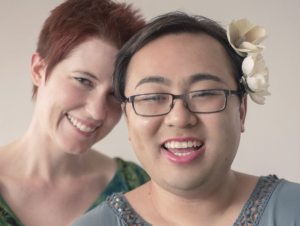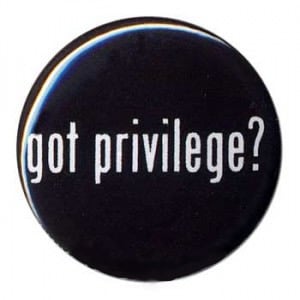Hey you-all. This video is part of a series I’m doing with Everyday Feminism which is a website dedicated to helping you break down and stand up to everyday oppression and in this video, I wanted to talk about another analogy that has helped me better understand some aspect of feminism. This useful analogy helps explain how femininity and the norms surrounding feminine appearance are self-enforced and held in place by all of us so I hope that we can put some distance between ourselves and these norms.
Not to say that we should stop being feminine or adhering to the norms that we want to adhere to, but just recognizing that they’re part of a larger system of patriarchal discipline and hopefully help us stop policing each other according to these norms. This analogy starts with an idea from philosopher Jeremy Bentham and he was not talking about femininity or any of that, he came up with the idea of an ideal prison and the ideal prison was called a panopticon. The panopticon is a prison with cells built around a central watchtower.
There’s one watchtower in the center and all the cells around it so the person in the watchtower, the guard can see in at all times to every prison and the prisoners know that there’s a central watchtower in the center, they can see that but they can’t see if there’s someone in there so they just have to assume that there’s someone watching them at all times. It seems that all you need is the belief that you’re being watched and you’ll self-monitor so that’s why the prison is so effective because no one has to actually go in there and enforce the rules on these prisoners.
They just enforce them on themselves thinking that if they don’t, this guard will come because he’s watching. This idea was then taken on by another thinker Foucault and Foucault believed that this was a metaphor for modern society more generally. He thought that not only prisons but all higher hierarchical structures in society like the army, schools, hospitals, factories. All of those have evolved through history to resemble this panopticon. In other words, power initially and used to be imposed from the outside through violence but now, this process has been internalized and people impose these constraints on themselves.
Now, feminist philosopher Sandra Bartky takes the panopticon from Jeremy Bentham and Foucault’s reading of it and applies it to femininity and what it means to be feminine in the patriarchal society. Bartky says that women self-police and commit themselves to relentless self-surveillance due to living in a patriarchal society. Basically, a panoptical male authority, the guard in the panopticon lives in the consciousness she thinks of most women so we’re constantly viewing our bodies through the eyes of this anonymous patriarchal other, the guard.
If we really think about beauty norms, they are completely impossible, unattainable. They also go against our body’s natural inclinations to grow hair and sit and walk and act a certain way. All of these things go against what our body really wants to go do naturally so why is it that we do them? Why do we follow them when there isn’t a panel of male authorities that are deciding these norms and enforcing them on us all? Bartky basically says that we do them for everyone and no one. The pressure comes from all around you. It’s not that there are specific people, it’s just other women, it’s men, it’s the media, it’s all of that.
It’s coming from everywhere but at the same time, it’s coming from ourselves, from no one else so because the male gaze is something that we’ve all internalized she thinks, there’s no need for a formal authority like a panel of men to enforce these norms and in fact, the lack of that formal authority creates this impression that gender norms are natural or that they’re a complete voluntary choice that we’re making and that there’s no other reason that we would do these things.
It’s important to realize that we are taught to think about our bodies as objects to be gazed upon and decorated and that there is always someone else judging us and viewing our bodies and this is something that we’ve internalized so we self-regulate according to that. It’s also important to remember that these aren’t realistically norms that we can all just shake off. Femininity is a practical requirement for a lot of women to move through a patriarchal society. We can’t escape this judgment even if we were to shake it from ourselves completely. There would still be pressure coming from all around us.
We’re judged by our size, our speech, our movement, even looking at our own age so because in this society, we’re perpetually being seen and judged by men, by other women and ultimately by ourselves. It says if we live in this panoptical prison and in the center is this patriarchal other that we’ve all internalized so when you think about how femininity impacts women and how we police ourselves, it’s clear that femininity itself and the norms surrounding it are part of a larger system of discipline which is patriarchy.
I just hope that this … I don’t want anyone to think I’m saying to stop wearing make up or any of that. I just want us to think more critically about the norms that we’re adhering to and why it is that we feel the need to do those things because I know that for myself, I don’t think that women needs to wear make up. Definitely not. I would never tell another woman that she should wear make up but when I look in the mirror, I can’t help but feel like I will look better if I put it on or something like that.
This idea that I’m even being looked at that that is even an important thing to think about is something that I’ve internalized growing up in a culture that tells me I’m here to be looked at and I’m here to be decorated so it’s very hard to shake but I think it’s an important thing to talk about and this analogy really helped me better understand how these norms work when there is no explicit authority forcing them on us. Hopefully this was helpful. If you have questions about it, put them in the comments and I’ll see you all in my next video.




















